Listening skills Alphabet Worksheets for Ages 3-5
7 filtered results
-
From - To
Develop essential listening skills for your child with our Alphabet Worksheets designed for ages 3-5. Perfectly crafted to hold young learners’ attention, these worksheets improve letter recognition, phonics, and auditory processing. By engaging in fun, interactive activities, children will enhance their ability to follow instructions, boosting both their confidence and communication skills. Our worksheets provide a strong educational foundation, preparing kids for future learning success. Suitable for use at home or in the classroom, they transform learning into a delightful experience while fostering crucial early childhood listening and alphabet knowledge. Explore our collection and start your child's journey toward mastering phonics today!


Baa Baa Black Sheep Printable
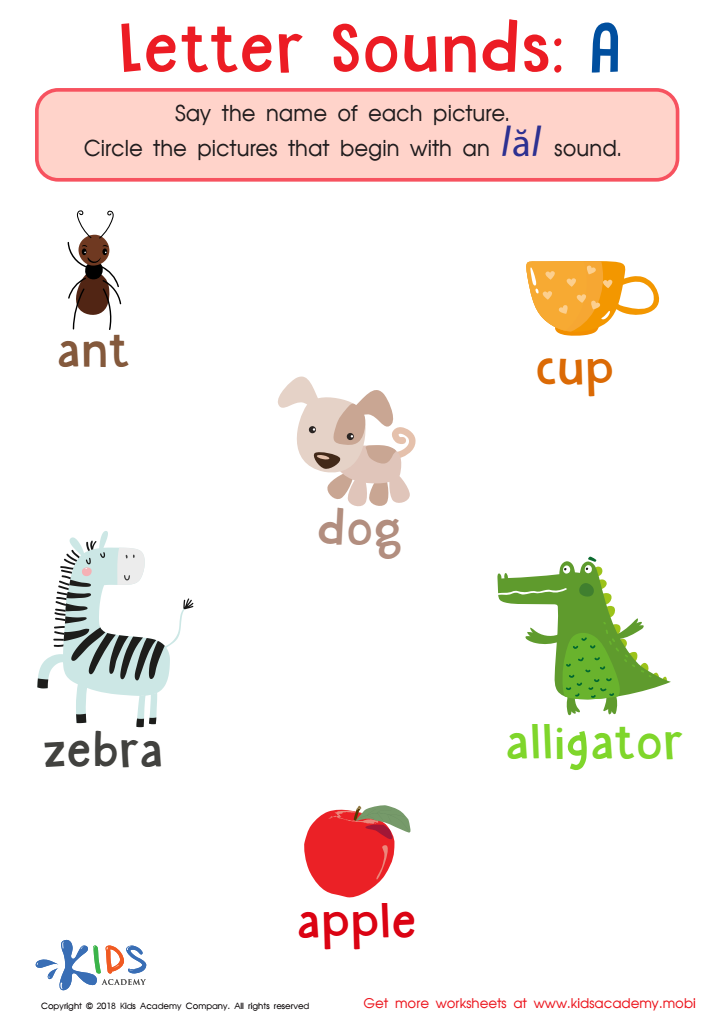

Letter A Sounds Worksheet
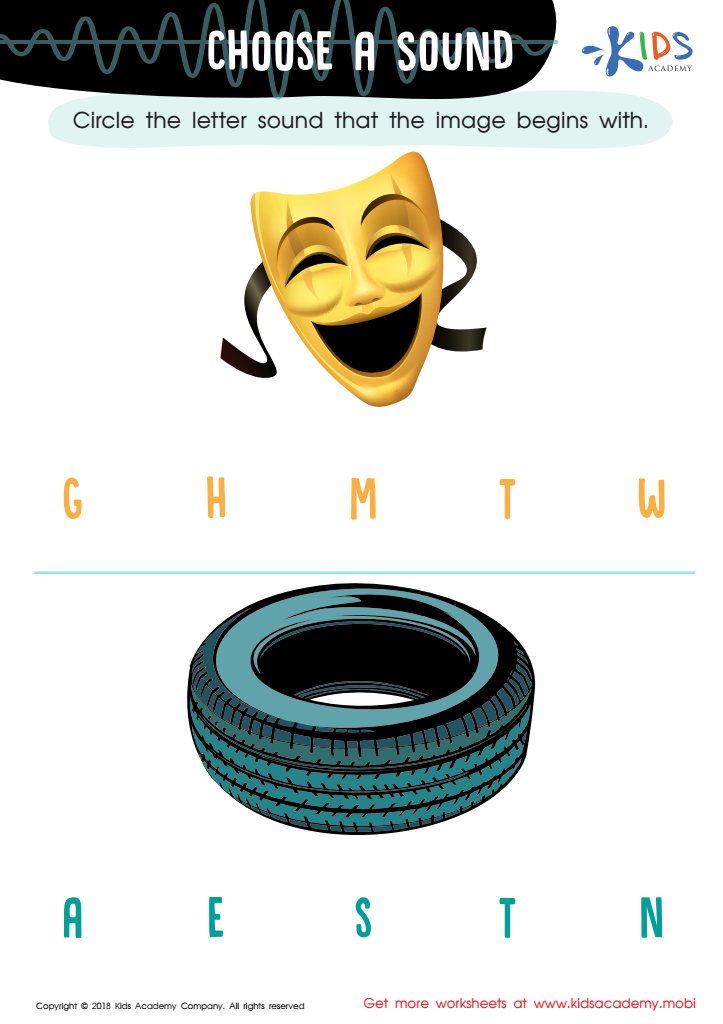

Choose a Sound Worksheet
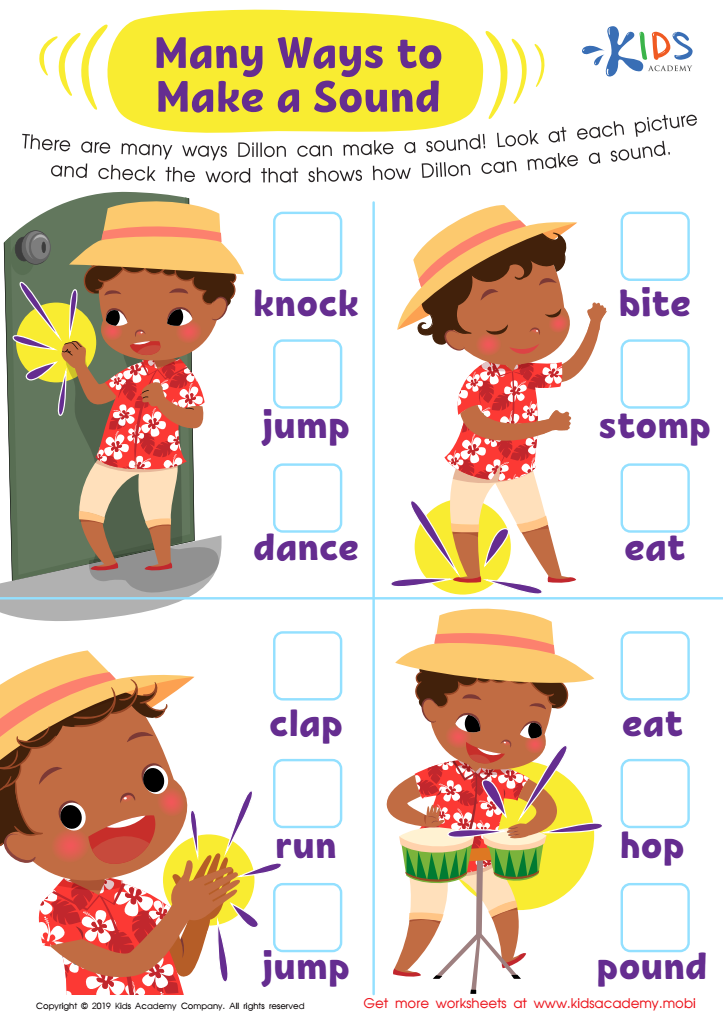

Many Ways to Make a Sound Worksheet
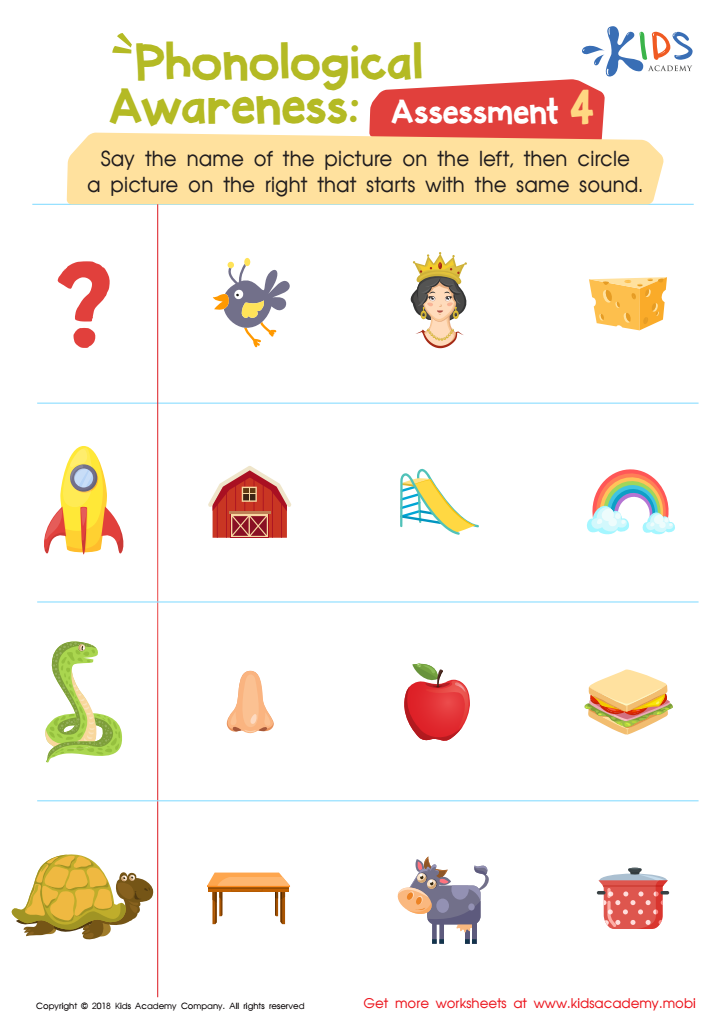

Phonological Awareness: Assessment 4 Worksheet
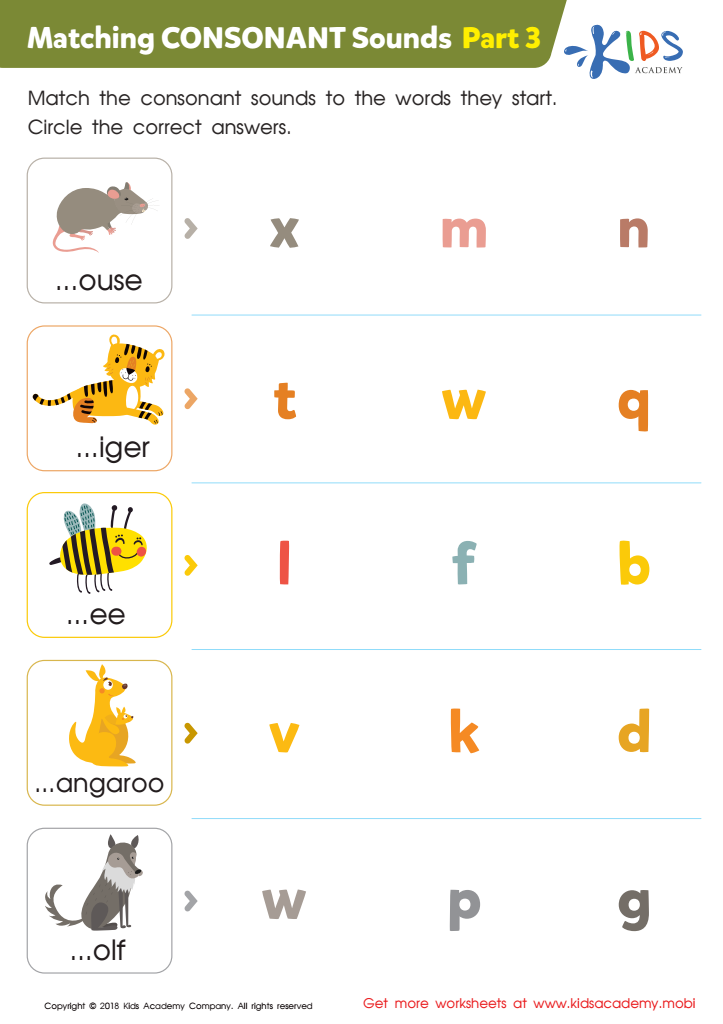

Matching Consonant Sounds: Part 3 Worksheet
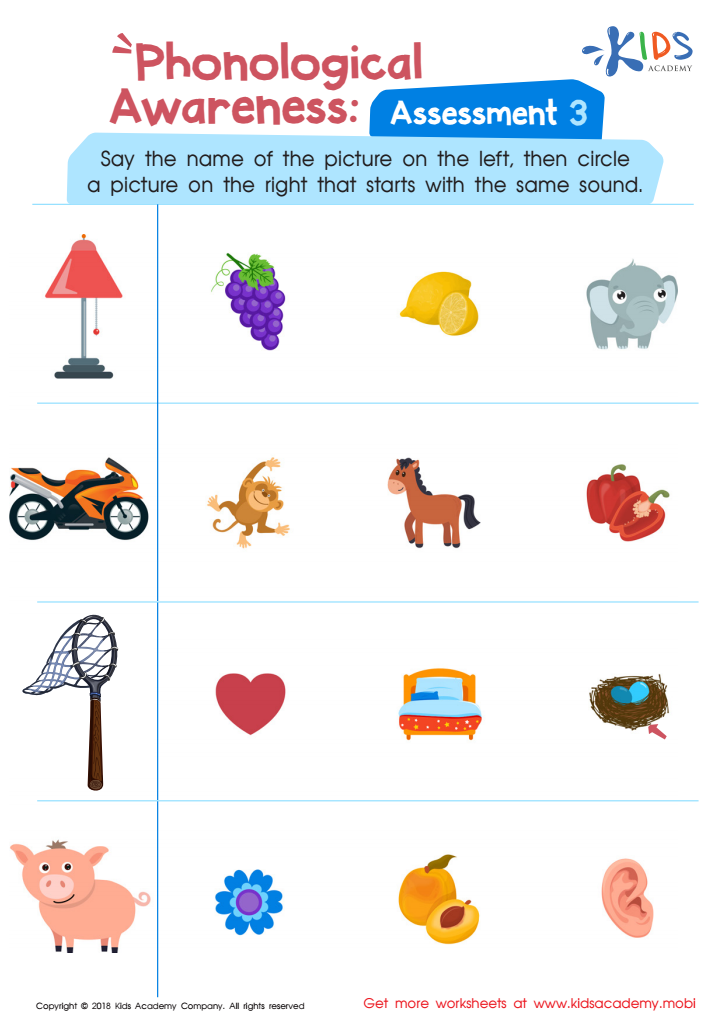

Phonological Awareness: Assessment 3 Worksheet
Listening skills are fundamental building blocks for language development and literacy in children ages 3-5. At this crucial stage, the Listening Skills Alphabet (LSA) approach can significantly enhance a child's cognitive, social, and emotional growth.
Firstly, engaging with LSA allows young children to link sounds with letters, promoting phonemic awareness, which is essential for reading readiness. By listening attentively to the sounds associated with different letters, children can better understand the connection between spoken and written language. This establishes a strong foundation for later reading and spelling skills.
Secondly, developing good listening skills helps children follow instructions more accurately, which is vital for classroom learning and following routines at home. It fosters attention and concentration, enabling them to better engage with stories, songs, and conversations, thereby enhancing their vocabulary and comprehension skills.
Furthermore, proficient listening skills cultivate effective communication. Children who are good listeners tend to be better at expressing themselves, leading to improved social interactions. They are also more empathetic and able to understand others' perspectives, laying the groundwork for strong interpersonal relationships.
In sum, incorporating LSA in the early years fosters a robust linguistic and cognitive framework, essential for academic success and overall personal development, making it a worthy investment for both parents and teachers.

 Assign to My Students
Assign to My Students
















